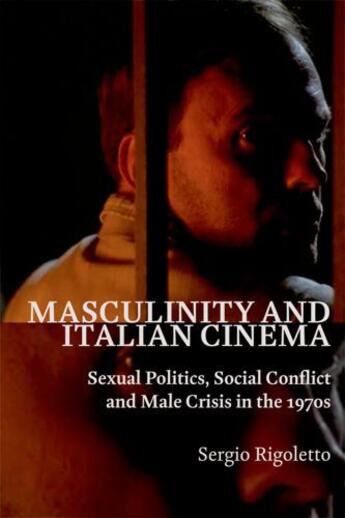Des idées de lecture pour ce début d'année !
Passionné(e) de lecture ? Inscrivez-vous
gratuitement ou connectez-vous pour rejoindre la
communauté et bénéficier de toutes les fonctionnalités du site !

How did Italian cinema of the 1970s re-envision masculinity in response to sexual liberation? What role did broader socio-political concerns of the time play in this re-definition? To what extent did this re-envisioning of masculinity intersect with concurrent debates about the function of cinema as a political medium and a mass cultural phenomenon?
Masculinity and Italian Cinema takes the 1970s as an especially instructive period for rethinking the traditional trope of an inadequate male in crisis within Italian cinema. It explores how masculinity functioned in several films of the 1970s as a charged allegory for the many socio-political lacerations of the Italian nation, and as a site of conflict and radical interrogation of ideas about gender and sexuality. Sergio Rigoletto re-examines a number of key films, including Bernardo Bertolucci's The Conformist, Federico Fellini's City of Women, Ettore Scola's A Special Day, Pier Paolo Pasolini's Teorema and Lina Wertmuller's The Seduction of Mimi, in the light of gender and queer theory, and considers the challenges that these films pose to received ideas about gender and sexuality of the time, and to some of the aesthetic and narrative conventions which have traditionally regulated the representation of men in film./ppSet within the broader cultural context of 1970s Italy, Masculinity and Italian Cinema rethinks the concept of male crisis in Italian film in an engaging and accessible manner. This is an essential read for students and scholars in Film Studies, Italian and Gender Studies.
Il n'y a pas encore de discussion sur ce livre
Soyez le premier à en lancer une !

Des idées de lecture pour ce début d'année !

Si certaines sont impressionnantes et effrayantes, d'autres sont drôles et rassurantes !

A gagner : la BD jeunesse adaptée du classique de Mary Shelley !

Caraïbes, 1492. "Ce sont ceux qui ont posé le pied sur ces terres qui ont amené la barbarie, la torture, la cruauté, la destruction des lieux, la mort..."